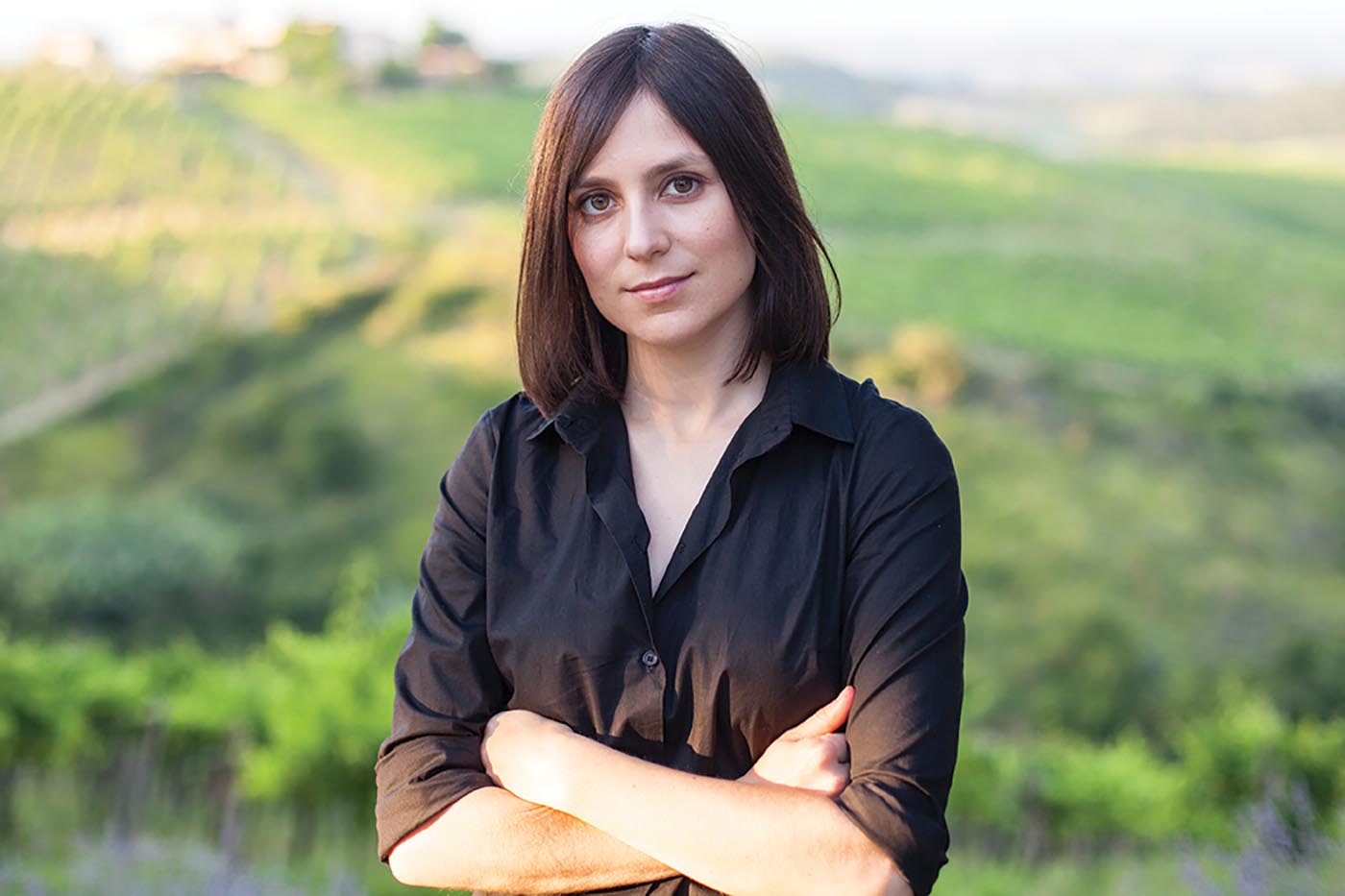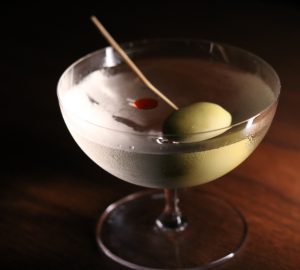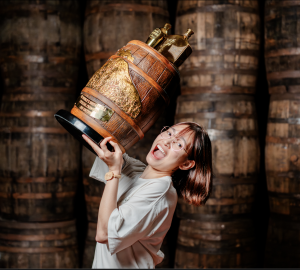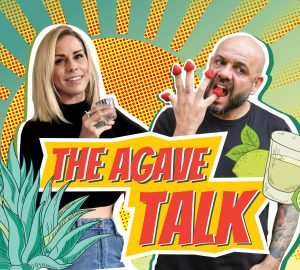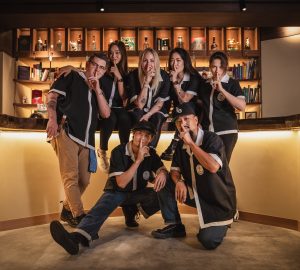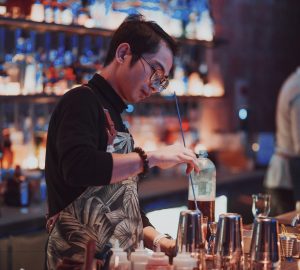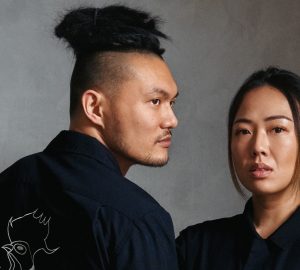Fresh off her latest book, Cork Dork, the journalist-turned-sommelier talks about chewing dirt, maniacal somms and why people don’t know how to taste. Interview by Jethro Kang.
Why are people afraid of the language around wine, given that tasting notes traditionally associated with it are now being used to describe spirits and beer?
I don’t think it’s exclusive to wine, but there’s definitely a more robust language and history around discussing wine. Wine has become so interdisciplinary. There is tons of scientific research. History and philosophical books have been written. Initially, from the position as an outsider, I heard so much about the tradition, the romance, the fairy tale of wine. The trope we hear over and over again is wine is grapes, yeast and love. The reality is so much messier, so much more complex, and so much more interesting than this portrait the industry likes to show us. It has been very convenient for the industry, but I’m less convinced that it serves drinkers well. It obscures differences, it makes a lot of things seem the same when they’re not, and it also continues some of this pretention that can be very intimidating and off- putting to people.
Many bartenders can talk about the flavours of a spirit or cocktail but give them a glass of wine and their faces go blank…
Yeah! For whatever reason, people tend to feel guilty or apologetic when they don’t know more about it. There’s almost this expectation that to be a civilised human being, you should know something about wine. You don’t find that with other spirits. People are like, “Well, I don’t know gin, and I’m OK with that.”
You noticed some sommeliers exhibiting extreme behaviour when fine tuning their tastebuds. What were the oddest examples?
This guy was getting ready to take this advanced sommelier exam, and he found he could taste best at 10am. The exam was at 8am local time, so weeks leading up to the exam, he recalibrated his sleep schedule so that he would wake up and taste wine at like four, five in the morning, so it would feel like 10am for his body on the day of the exam. There were a lot of people who would travel with their own granola so they would always eat the same thing before a tasting. Also, not ever changing the brand of deodorant, shampoo, body wash, toothpaste, all these things. Different sommeliers hold to different routines, and some of them are more superstitious than they are scientific, but I can tell you the things I did based on their advice. I gave up coffee, perfume, scented laundry detergent, spicy foods, adding extra salt to my food, liquids above lukewarm temperature, hard alcohol…
What was most difficult to give up?
Giving up coffee was really, really hard! I also rearranged my teeth-brushing schedule. I have chewed my fair share of dirt. I have licked rocks. I have gummed soil. There are also sommeliers that talk about their palates as though they’re their best friends. They know how their noses and tongues change as the weather changes, as they go from high to low altitude, high to low humidity, or as they go nearer the water or further away from the water.
What are the ways to train yourself to taste and smell better?
One is self-knowledge. Understanding how long does it take for your tongue to get back to baseline when you’re not tasting. I spent a lot of time figuring out how long does it take after I eat or drink something [for my tastebuds] to go back to neutral. Also, self-deprivation, not eating or drinking [things] that are going to interfere with your palate. And then, self-regulation, which is keeping everything the same before a tasting.
Giving up coffee was really, really hard! I also rearranged my teeth-brushing schedule. I have chewed my fair share of dirt. I have licked rocks. I have gummed soil.
You also mention external factors like colours or sounds can influence how we taste. How do you balance between what you can and cannot control?
One of the things that I found fascinating is that as humans, we are multisensory. Every sense acts on the other. The colour green, for example, has a taste, certain studies show. And a lot of us, when we go into tasting environments, don’t always think about controlling these inputs that act on our other senses. For example, music. If you’re in a really loud room, it’s been shown to dull taste. If you’re going to a distributor tasting and you’re tasting wine for the restaurant, you may not be experiencing the full potential of that wine. On the other hand, maybe you’re serving at a restaurant that’s really noisy, and it makes sense. But to control their effect, the first thing is to understand how these seemingly unrelated inputs actually change our experience of flavour. If we’re really in situations where we’re aspiring to more objective sensing, know how to these forces act on us. A lot of people cannot even tell the difference between taste and smell, which is remarkable.
Sommeliers have struggled to stay on the floor selling wine – they’ve traditionally become beverage managers and distributors as they have burned out – but do you think social media has enabled somms to create new career paths?
I think celebrity sommeliers are the new celebrity chefs. There have been movies about them, a TV show. Obviously, there’s now a book! They’re increasingly speaking directly to their drinkers through social media. But in some ways, it’s too early to tell. You’re right that the job of the sommelier looks very different than what it used to. Back in the day, a sommelier was really a failed chef. But now you see this generation of up-and-coming sommeliers who do it as less of a job and more of a calling. They describe themselves as white collar refugees. They have Ivy League diplomas and graduate school degrees and yet they found their passion and fulfilment comes from working the floor and working in wine. They’re also younger than they have ever been before; there are more women. But it’s still a very difficult, demanding job. They’re working six days a week, 70 to 80 hours a week, late into the night, they’re nocturnal. And there isn’t a ton of stability. I think that what we’re seeing is people trying to figure out whether they can sustain a sommelier career and how can they bring different things together. I do think we’re seeing a professionalisation in the industry. You are seeing sommeliers, right now, who are trying very hard to see whether they can keep working the floor while supplementing that with other enterprises, like making their own wine, which allow them to be their own public free agents.
People who drink Yellow Tail are not the enemy.
Will we see guest sommeliers like we see guest bartenders?
We already have that! At Terroir where I worked, we had a lot of guest sommeliers. There’s a place called Compagnie des Vins Surnaturel that does a mix tape series where they bring different wine people to pour wine and come up with a playlist. One thing I’ve been intrigued by is sommeliers in restaurants who are becoming draws in their own right. For example, Pearl & Ash and Rebelle in New York – Patrick Cappiello is the wine director who’s really the public face of the restaurant. Likewise, Rouge Tomate in Chelsea, which is run by Pascaline Lepeltier. She is the persona generating a lot of the excitement and buzz around it. And I’ve been very excited to see sommeliers and wine directors experimenting with new formats of wine lists that allow them to really showcase their point of view and their voice just as much as the chef does on the food menu.
You were criticised for a New York Times column praising mass market, industrial wine – why do you think there’s a backlash even though these wines can mean a new breed of oenophiles?
It definitely set off a lot of conversation. I received very, very positive emails and notes from a lot of people. There were also a lot of thoughtful and considerate columns that were written in response, and of course, there were people who disagreed with it. The point of the piece was to say these types of wines can, for some people, be their gateway to becoming thoughtful drinkers. We should leave open a variety of doors for them to come into this world. What I found concerning about the reaction is it represented what the industry does too often, which is to tell people what to taste, instead of showing them how. People who drink Yellow Tail are not the enemy. Let’s show them the way, but we should let them find a myriad of different paths into it.
Cork Dork: A Wine-Fueled Adventure Among the Obsessive Sommeliers, Big Bottle Hunters, and Rogue Scientists Who Taught Me to Live for Taste by Bianca Bosker is published by Penguin Books.
This interview was first published in Issue 06 of DRiNK Magazine.


